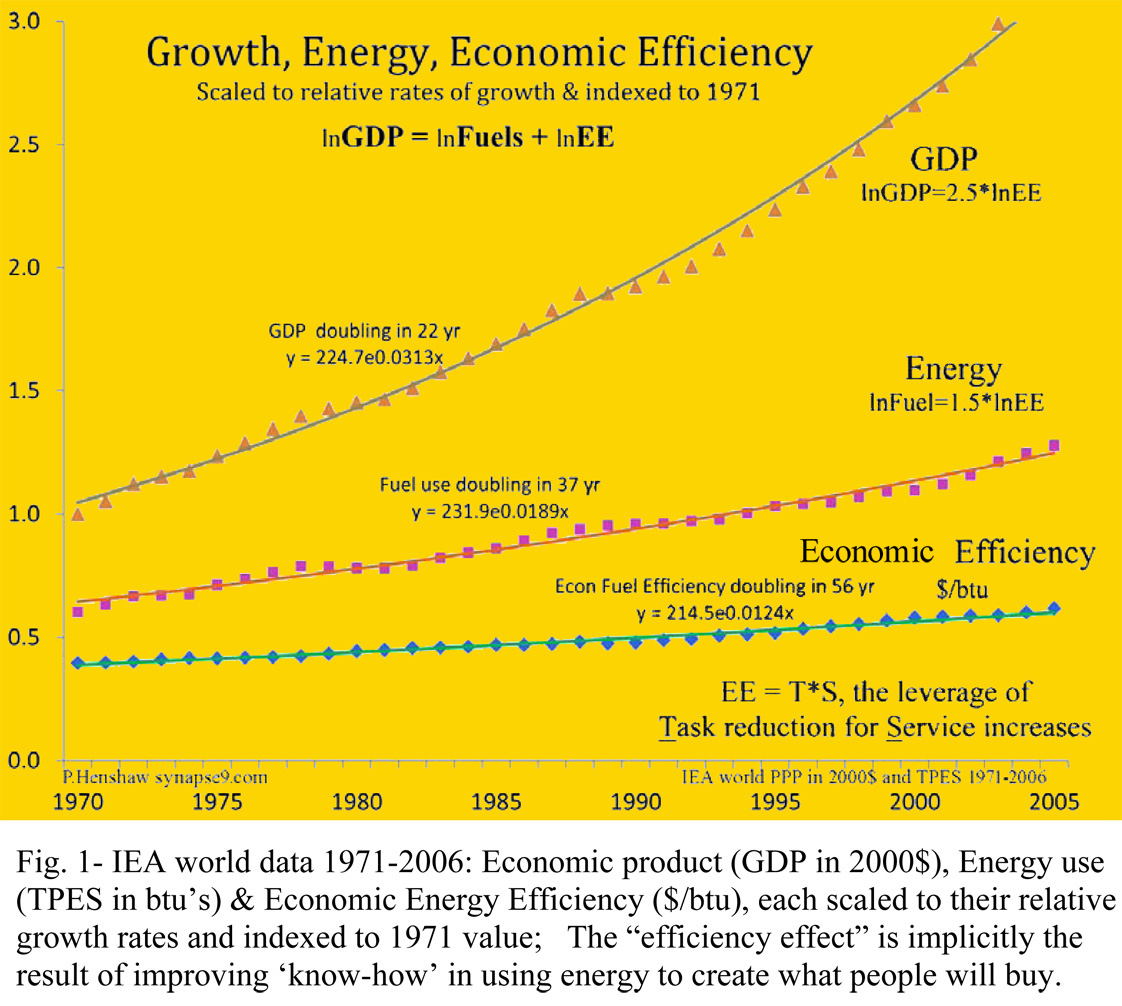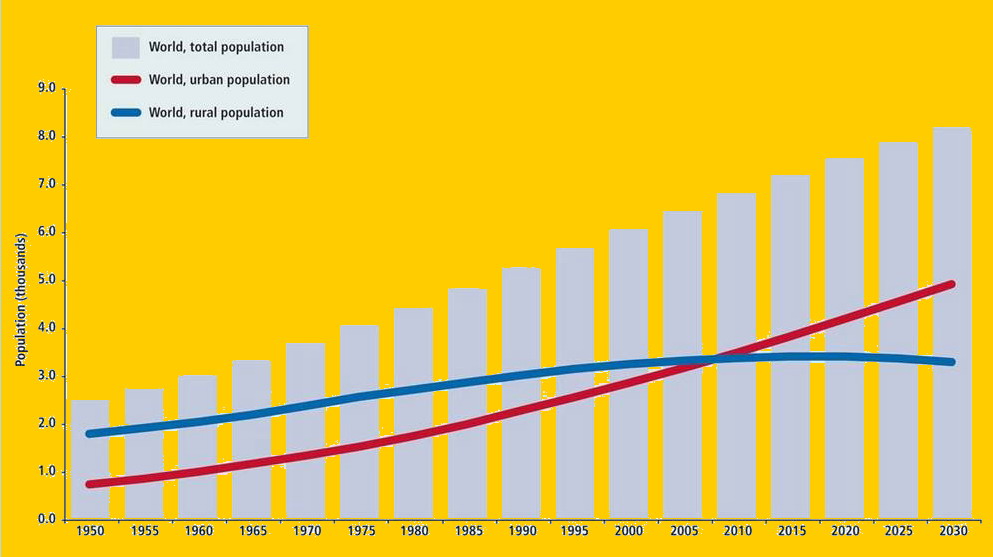Clear
Spots,
The
Up
Side
of
Blind
Spots…
pdf file
:
www.synapse9.com/issues/HDS-ClearSpots.pdf
... the way nature appears to find them, really, is building systems
by continual
unbiased local
exploration
, it's learning process, it's method of making sure to ask all the 'dumb
questions'. Have any?
P.F. Henshaw
eco @ synapse9.com 5/12/08 - feel free to comment -
|
|
|
Enlarged Graphs (right click to save a larger
image) |
|
‘Efficiency’ is a sacred idea… but the
Learning Rate is slower than Our Growth Rate.
So efficiency is not working to reduce our
impacts, only to slow their multiplication. It's not physically
doing what people believe in it for, and that our image is blinding us.
The Clear Spot
is seeing we can switch to the feasible
solution of stabilizing the economies. Then improving efficiency
would have the intended effect.
|
|

World Growth of Energy Use and World Improvement in
Energy Efficiency
OECD IEA 2007 World Data
|
|
‘Life
saving aid’ is a sacred idea, but it's not true life saving if it
multiplies the number of people living in unstable communities. Our 'idea'
of helping is then blinding us to how to make it work.
The
Clear Spot in facing the whole
reality is seeing how to tie life saving to success to stabilizing
communities, putting the usual 2nd step 1st. Remarkably most aid
organizations, urban planning societies and even the press treat the
subject as taboo. So that's the first real moral issue to deal
with.
|
|

Urban, Rural & World Population 1950 to 2005 Data project to 2030
http://www.peopleandplanet.net/doc.php?id=1489 |
1) OECD IEA 2007 World Data
2)
http://www.peopleandplanet.net/doc.php?id=1489
The Food Crisis
-
It helps
point to an error in reasoning when made by people with
unquestionable commitment, compassion and creativity, like the
leadership community of the environmental movement. The long promotion of
‘renewable resources’ is a classic case of ‘functional fixation’. Our fixed
image of ‘good’ hid the ‘alien’ life of food consumers that happened to be in
the way. We were not watching the limits and did
not see the point where ‘more good’ turned to do harm. Our
questioning ‘buttons’ were turned off, as if not needed. All the ‘renewable’
technologies are actually niche opportunities with problems in the future like
that.
(cont.)
All the promising ‘renewable’ technologies
from wind to solar to the other interesting bio-fuel options are the same kind
of good niche opportunities, being offered as a way to solve what our blind
spots prevent us from seeing as an unlimitedly growing problem. We seem
destined to over-develop them. When you don't explore the limits of
the niche your intrusions run into upsetting consequences before you can see a
reason to slow down. It guarantees that you'll overshoot their limits and
step on everything around them. What you find when you ask, is that
all the 'renewable resources' being proposed as growth opportunities
would consume land in ever growing non-renewable ways. We didn't notice that
apparently because the word 'renewable' fits a place in our thinking that says
'don't look'. If used for the assumed purpose of eliminating
the impacts of ‘non-renewable’ energy resource use, all the 'renewable
resource' options will backfire. They'll have unlimitedly growing
impacts of their own. It simply takes using a great
deal more land to offset the vast amount of energy coming from small holes in
the ground.
Ethanol
is really just the ‘canary in the coal mine’ signaling that the environmental
movements let the meaning of the term ‘renewable’ disguise the fact that these
technologies would have ever growing impacts on other things. A huge amount of
well meaning activism, scientific, financial & government research went into it.
That ethanol production seems to have directly triggered a bigger economic
change is the next part of the puzzle. I and others had been warning
about related things for a long time, but I had not realized what the dynamic
was myself before the the food price war suddenly added a 100 million or more
people and their communities on the permanent dire poverty list. The
large ethanol demand spike in late 2006 ran into an environment of
unusually inflexible supply, and thus the growing momentum of the price war and
global shift in food costs.
When you start
listing the reasons for the simultaneous rigidity of increasing food demand and
decreasing food supply, there seem to be a *lot* of them.
They're mostly going to get progressively worse too. The one
that collects the largest number of them together seems to be the huge momentum
of global development, vastly increasing food demand while non-renewably
consuming food producing land by several means.
It's really very bad news, and a further warning about
what happens when you let crises determine your growth limits.
Everything steps on everything. Global warming and the
food crisis are just the first two big and highly threatening disasters to come
from guiding our future using reassuring images of the past, our self-made blind
spots. Now the price war has permanently reduced the number of
people that can be fed by the free market system. The arithmetic is simple and
the 'clear spot' is to fight your way through the disconcerting clutter
of 'conventional wisdoms' in our way to sense the true
great moral questions of our time, and our genuine choices.
jlh Physics of Happening

